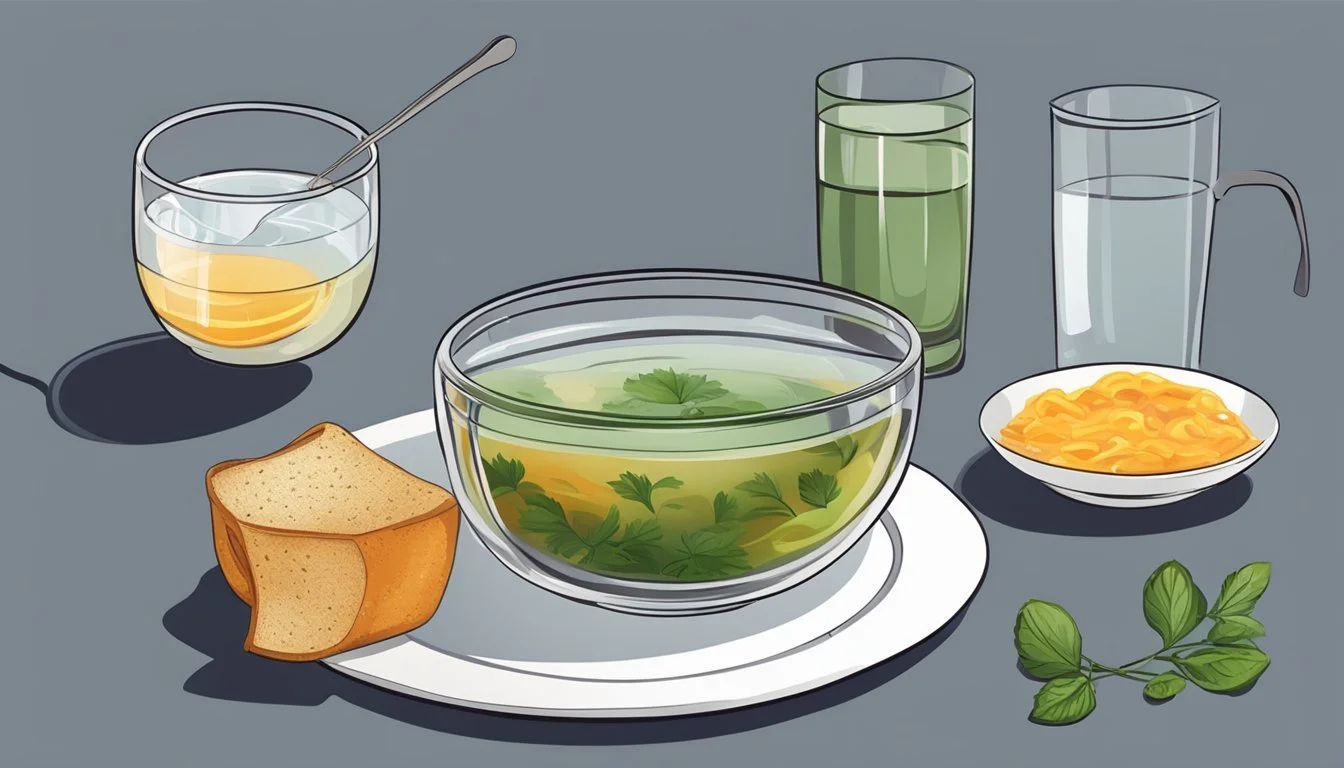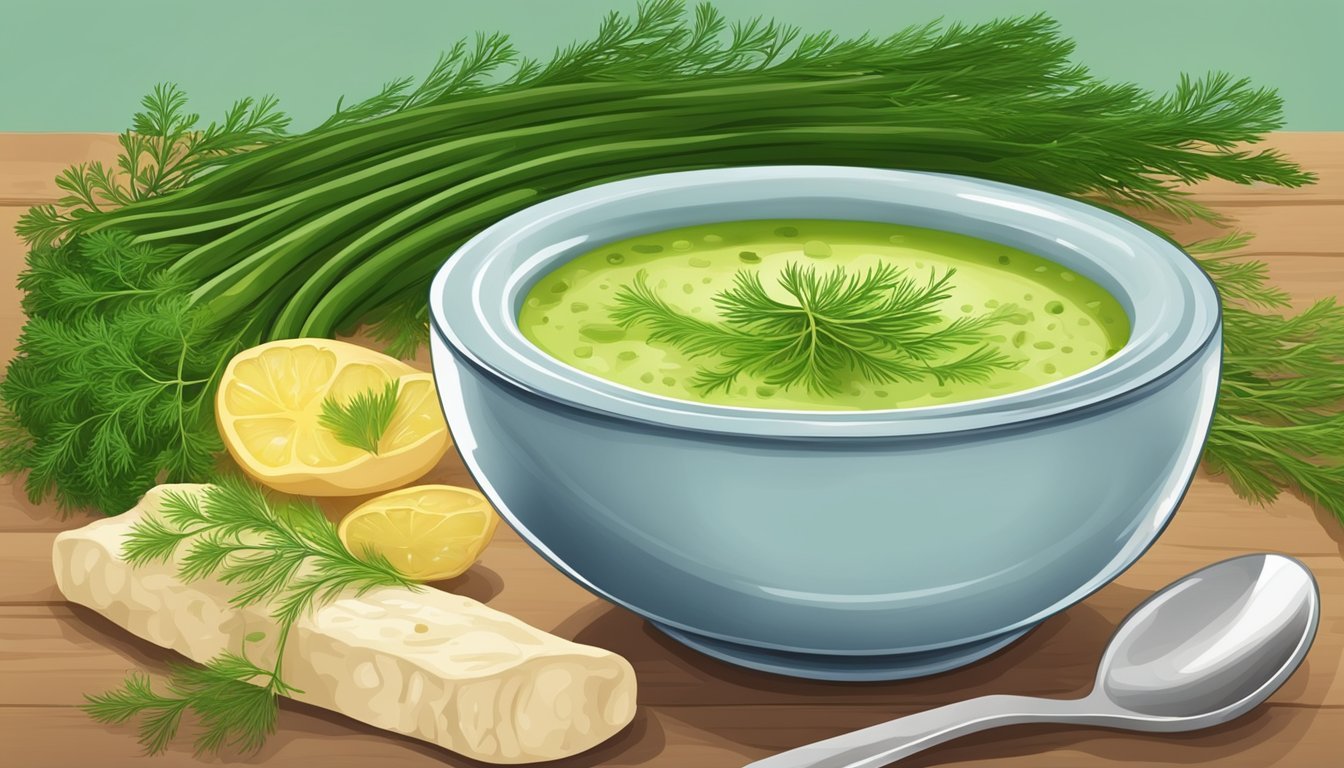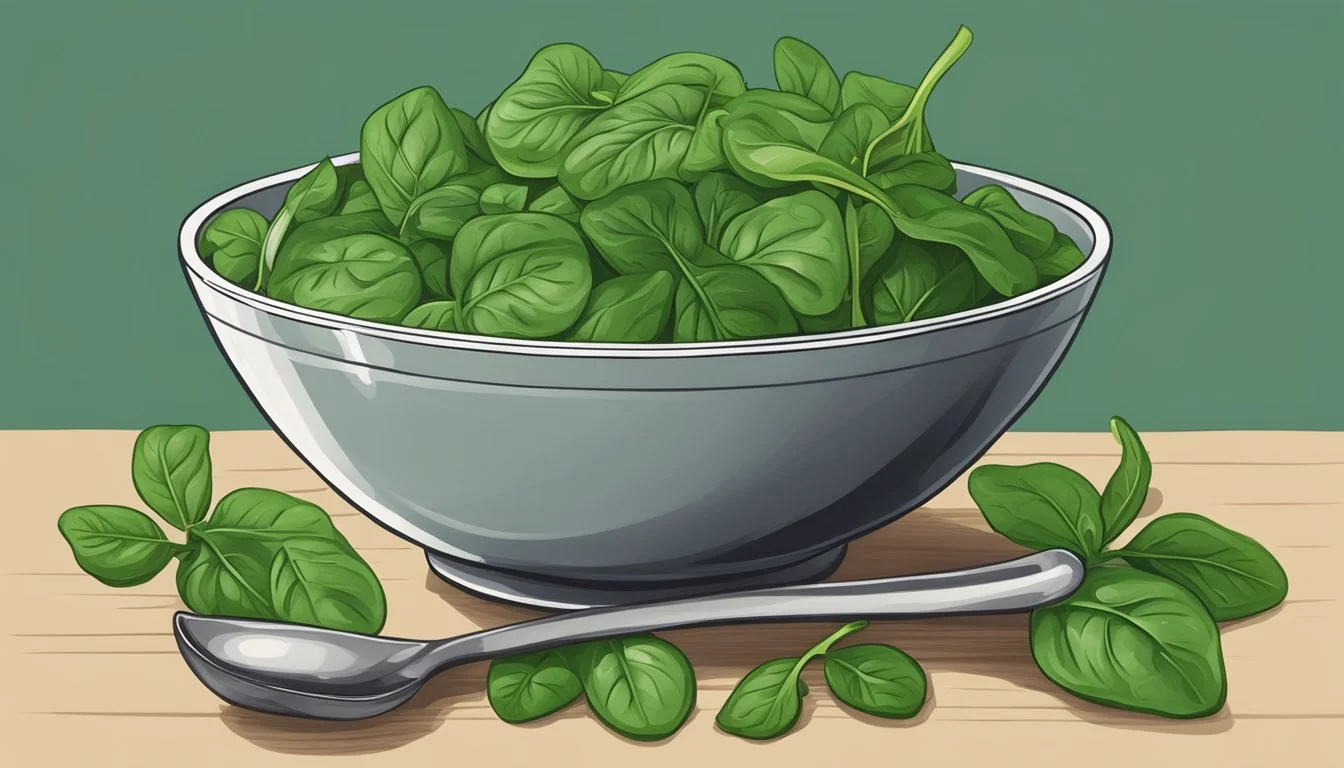Foods That Help Relieve Menstrual Cramps Naturally
Cramps can be a disruptive and painful experience, affecting various parts of the body such as muscles and the uterus. Finding ways to alleviate or prevent these cramps can significantly improve daily comfort and overall wellbeing. Certain foods have been identified as potential allies in the fight against cramps, offering natural relief through their nutrient content.
Understanding which foods can help manage or reduce cramps can empower individuals to make informed dietary choices. By incorporating these foods into their regular diet, people can take proactive steps toward minimizing the frequency and intensity of cramp-related discomforts.
1) Bananas
Bananas are often recommended for muscle cramps due to their high potassium content. Potassium plays a crucial role in muscle function, helping maintain electrolyte balance and ensure muscle contractions occur smoothly. This can potentially prevent cramping.
In addition to potassium, bananas contain other essential nutrients like vitamin B6 and magnesium. These nutrients contribute to overall muscle health and can aid in reducing the frequency of cramps.
Incorporating bananas into one’s diet is simple and versatile. They can be eaten on their own, added to smoothies, or included in breakfast dishes like oatmeal and yogurt. Bananas are readily available year-round and are an easy, portable snack.
Recent studies suggest that while bananas can be helpful, they may not be a complete solution for everyone. A balanced diet with various sources of nutrients is crucial for effectively managing and preventing muscle cramps.
2) Ginger Tea
Ginger tea is often recommended for relieving menstrual cramps. This natural remedy has been used in traditional medicine for centuries. Ginger contains compounds that reduce inflammation, potentially easing pain associated with period cramps.
Studies have shown that ginger can be effective in alleviating the symptoms of primary dysmenorrhea, including pain and inflammation. Its anti-inflammatory properties make it a popular choice among those seeking natural relief.
Drinking ginger tea may also help with nausea, a common symptom experienced during menstruation. The soothing warmth of the tea coupled with ginger's medicinal properties can provide comfort during this time.
Brewing a cup of ginger tea is simple. Fresh ginger can be sliced and steeped in hot water, or one can use pre-packaged ginger tea bags. Adding a splash of honey or lemon can enhance the flavor and benefits.
Including ginger tea in a daily routine during menstruation may provide noticeable relief. As with any remedy, it's important to listen to the body's response and consult with a healthcare professional if severe symptoms persist.
3) Peppermint Tea
Peppermint tea is a popular remedy for menstrual cramps. It contains peppermint oil, known for its anti-inflammatory properties. This can help in reducing the severity of cramps.
Research suggests that peppermint capsules may alleviate menstrual pain. Some find relief by drinking peppermint tea. It offers a soothing effect that can ease discomfort.
Peppermint also has natural muscle relaxant qualities. These can aid in reducing the muscle contractions that cause cramps. Its antispasmodic properties make it a beneficial choice during menstruation.
Besides its cramp-relieving properties, peppermint tea is commonly enjoyed for its digestive benefits. It can help reduce bloating, which often accompanies menstrual cramps. Peppermint tea, being caffeine-free, is a gentle and comforting option.
4) Chamomile Tea
Chamomile tea is known for its calming properties, which can help alleviate menstrual cramps. This herbal tea is made from the dried flowers of the Matricaria chamomilla plant, and it has been used for centuries to provide comfort during periods.
The tea contains flavonoids and terpenoids, which have anti-inflammatory effects. These compounds can help relax the muscles of the uterus, reducing the intensity of cramps.
Chamomile tea is also noted for its ability to ease anxiety, which can be beneficial during menstruation. By promoting relaxation, it can help those experiencing heightened stress or irritability.
Additionally, drinking chamomile tea before bed can improve sleep quality, offering further relief from menstrual discomfort. It's a gentle and natural remedy that can be easily incorporated into a daily routine for soothing effects.
5) Salmon
Salmon stands out as a beneficial food for alleviating cramps. It is rich in omega-3 fatty acids, which have powerful anti-inflammatory properties. These properties help in reducing prostaglandin production, a chemical linked to increased menstrual pain.
Consumption of salmon provides essential nutrients like B vitamins, potassium, magnesium, and phosphorus. These nutrients support muscle function and reduce cramping.
Salmon also contains vitamin D, aiding in calcium absorption. Proper calcium levels are crucial for maintaining healthy muscle function, which can help ease cramps.
Eating salmon a couple of times a week can be an excellent addition to a diet aimed at reducing period cramps. Its versatility allows it to be included in various dishes, making it easier to incorporate into meals.
6) Yogurt
Yogurt is a versatile and nutritious food that can help alleviate cramps. It is rich in calcium, which is essential for muscle function and may help reduce muscle cramps.
Calcium in yogurt helps in maintaining muscle health, and its consumption can aid in preventing cramps, especially post-workout.
Greek yogurt, in particular, is beneficial. It contains potassium and magnesium, important electrolytes that play a role in muscle contraction and relaxation. These nutrients help in reducing the occurrence of muscle cramps.
Additionally, yogurt contains probiotics, which support gut health. A healthy digestive system is crucial for nutrient absorption, ensuring that the body gets adequate minerals to prevent cramps.
Including yogurt in the diet can be easy and enjoyable. It pairs well with fruits, nuts, and seeds, making for a balanced and tasty meal or snack.
7) Dill
Dill, a fragrant herb commonly used in pickles and salads, contains several nutrients that may help alleviate muscle cramps. This herb is rich in calcium and magnesium, two minerals essential for muscle function and relaxation.
In addition to its essential minerals, dill offers anti-inflammatory properties. These properties can help reduce inflammation in muscles, potentially easing discomfort associated with cramps.
Dill also provides a natural source of electrolytes. Electrolytes are crucial for maintaining fluid balance and proper muscle contractions, which can aid in the prevention of cramps.
Including dill in your diet can be simple. Add it to salads, soups, or yogurt-based sauces for a fresh and flavorful boost. It can also complement fish and potato dishes nicely.
Incorporating dill consistently in meals ensures the body receives a steady supply of valuable nutrients. This can contribute to better muscle health and reduce the likelihood of cramps occurring.
8) Brown Rice
Brown rice is a whole grain that offers several health benefits. It is rich in fiber, vitamins, and minerals, making it a nutritious choice for many.
Phytic acid in brown rice can inhibit nutrient absorption. This anti-nutrient might reduce the absorption of essential minerals such as iron and zinc.
Eating brown rice in moderation can be beneficial. It provides a good source of dietary fiber. One cup of brown rice contains about 7.3 grams of fiber, which aids in digestion.
People with sensitive stomachs might experience cramps after eating brown rice. The fiber content can sometimes cause digestive discomfort.
Choosing other types of rice, like white rice, may be easier on the stomach for some individuals. However, the nutritional benefits of brown rice make it worth considering for inclusion in a balanced diet.
9) Tofu
Tofu is an excellent source of calcium, a mineral known for its role in muscle function. Consuming sufficient calcium can help alleviate muscle cramps. Half a cup of firm tofu can supply around 20-25% of an adult's daily calcium needs.
Beyond calcium, tofu also provides magnesium, another essential mineral for muscle health. Magnesium helps in muscle contraction and relaxation, further aiding in the prevention of cramps.
Tofu is versatile and can be incorporated into various dishes. Whether added to stir-fries, soups, or salads, it offers nutritional benefits without overwhelming the taste of other ingredients. This makes it an easy addition to any diet aimed at reducing muscle cramps.
10) Spinach
Spinach is a green leafy vegetable packed with essential nutrients that can help alleviate cramps. It is rich in magnesium, a mineral known for its muscle relaxant properties. Ensuring adequate magnesium intake may reduce the frequency and severity of cramps.
Spinach also contains calcium, which helps muscles contract and relax efficiently. A diet deficient in calcium can lead to more frequent cramping. Consuming spinach regularly can help maintain proper calcium levels in the body, supporting muscle function.
Incorporating spinach into meals is easy. It can be added to salads, smoothies, or as a side dish to various main courses. Its versatility and nutrient density make it a valuable addition to a cramp-relief diet plan.
Spinach is also a good source of potassium, which plays a crucial role in muscle function. Potassium helps in balancing fluids and electrolytes, reducing the chances of muscle cramps. Ensuring an adequate intake through spinach can be beneficial.
Understanding Cramps
Cramps are sudden, involuntary muscle contractions that can occur in various parts of the body. This section explores the different types and underlying causes of cramps.
Types of Cramps
There are several types of cramps, each with distinct characteristics:
Skeletal muscle cramps are the most common and often affect the legs. They can occur during exercise or at rest.
Smooth muscle cramps affect the involuntary muscles such as those in the digestive tract, leading to conditions like menstrual cramps or gastrointestinal cramps.
Night cramps typically occur in the calves during sleep and can be quite painful.
Understanding the specific type of cramp is crucial for identifying appropriate treatments and preventive measures, as the underlying causes can vary significantly.
Causes of Cramps
Several factors contribute to the onset of muscle cramps:
Electrolyte Imbalances: Deficiencies in magnesium, potassium, and calcium can trigger cramps. For instance, low potassium levels disrupt muscle function.
Dehydration: Inadequate fluid intake or excessive fluid loss can lead to cramping, especially during exercise.
Poor Circulation: Conditions like peripheral artery disease can reduce blood flow to the muscles, causing cramps.
Medical Conditions: Diseases such as hypothyroidism or diabetes may increase the risk of cramping.
Knowing these causes helps in managing and preventing cramps effectively through dietary choices and lifestyle adjustments.
Nutritional Approaches to Alleviate Cramps
Maintaining proper hydration and consuming foods rich in essential vitamins and minerals can significantly reduce muscle cramps. Below, these factors are explored in detail.
Importance of Hydration
Staying hydrated is crucial for muscle function. Dehydration can lead to an imbalance of electrolytes, like sodium and potassium, which are vital for muscle contractions.
Drinking water throughout the day ensures that muscles receive the necessary fluid to function correctly. Electrolyte-rich beverages such as sports drinks, coconut water, and fruit juices can also help. These drinks replenish lost electrolytes during strenuous activities, preventing cramps.
Avoid caffeine and alcohol as they may cause dehydration. Including hydrating foods such as cucumbers, melons, and oranges in the diet is equally important.
Key Vitamins and Minerals
Certain nutrients play a vital role in muscle health. Magnesium aids in muscle relaxation and can be found in foods like leafy greens, nuts, and seeds. Adequate magnesium intake can help in reducing cramps.
Calcium is essential for muscle contraction. Dairy products, kale, and broccoli are excellent sources. Calcium needs vitamin D for proper absorption, so exposure to sunlight and foods fortified with vitamin D is beneficial.
Potassium controls muscle contractions and nerve signals. Bananas, potatoes, and spinach are potassium-rich foods that can alleviate cramps.
Vitamin B complex, especially B1, B6, and B12, supports muscle function and energy production. Incorporating whole grains, legumes, and lean meats can ensure adequate intake of these vitamins.
Foods to Include in Your Diet
Incorporating certain foods into your diet can help prevent and alleviate cramps. Specific nutrients such as potassium and magnesium play key roles in muscle function and can be found in various readily available foods.
Potassium-Rich Foods
Potassium is vital for muscle contractions and nerve signals. Bananas are one of the most popular sources of potassium, often recommended to athletes to prevent cramps. Sweet potatoes also offer a high potassium content, along with vitamins A and C. Avocados not only provide potassium but also healthy fats.
Other options include spinach and white beans, which are potassium-dense and can be easily integrated into meals. Cantaloupe is another excellent choice, not only hydrating but also potassium-rich, making it ideal for muscle health.
Foods High in Magnesium
Magnesium helps relax muscles and supports nerve function. Dark leafy greens such as spinach and kale are outstanding sources of magnesium. Nuts and seeds, like almonds and pumpkin seeds, are not only convenient snacks but also magnesium-rich.
Legumes, including lentils and chickpeas, can be incorporated into soups and salads for a magnesium boost. Whole grains such as quinoa and brown rice not only offer complex carbohydrates but are also high in magnesium. Dark chocolate provides a sweet treat that is surprisingly rich in magnesium and antioxidants.
Including these foods in your diet can effectively help in managing and preventing cramps.





